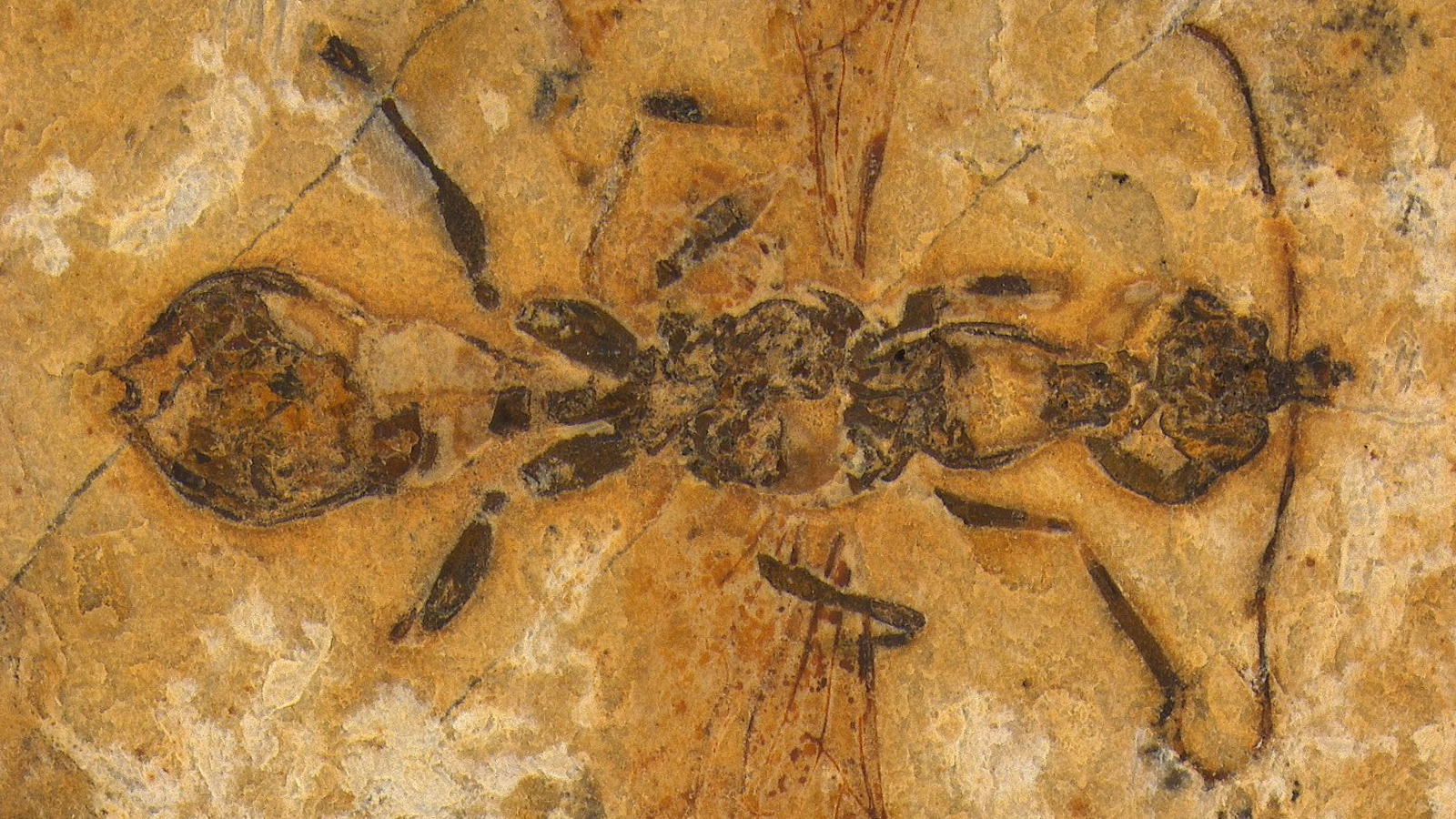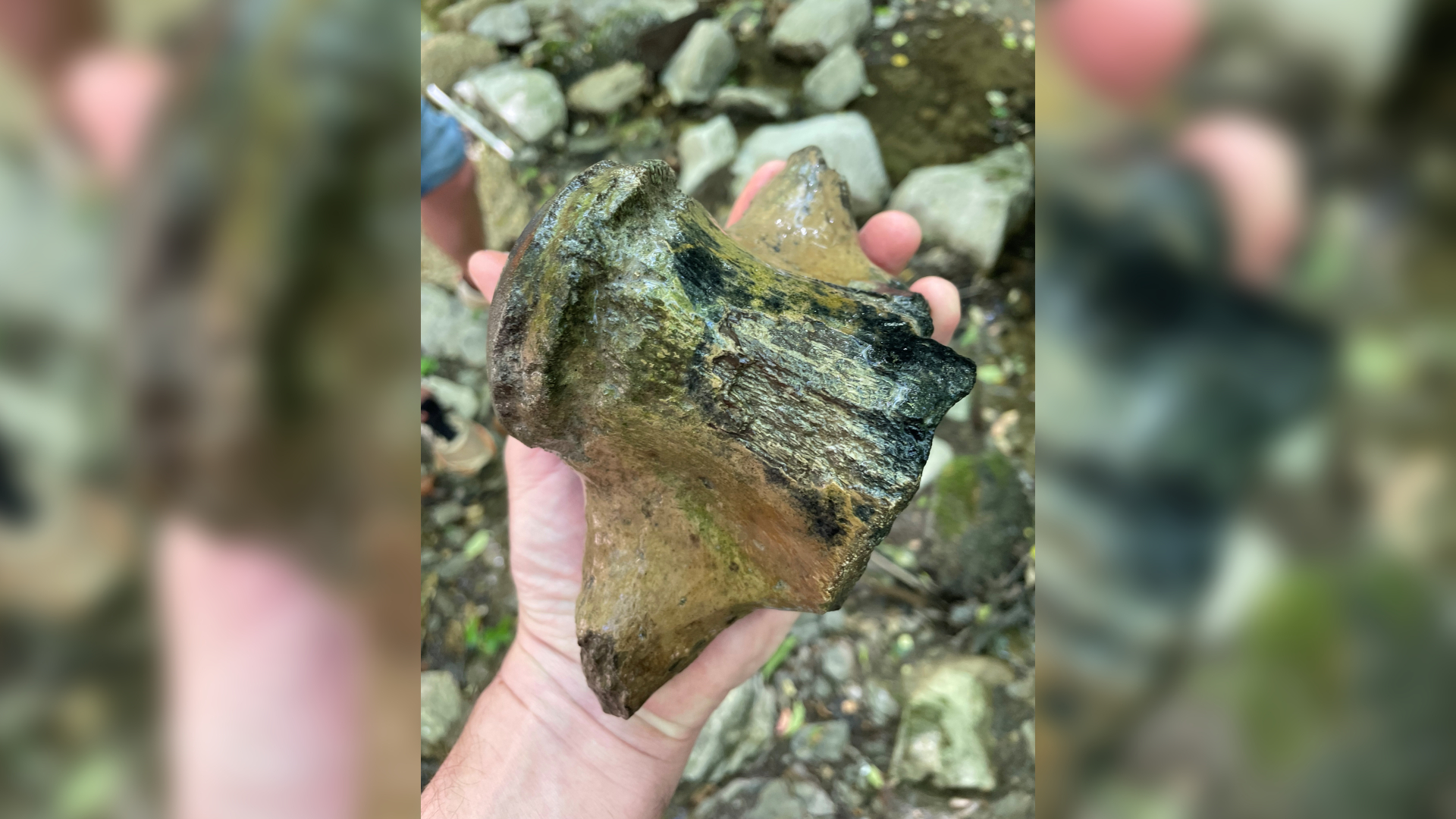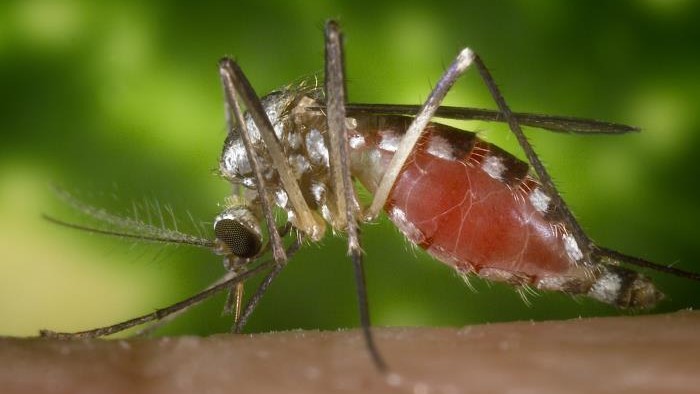Giant tortoise babies of first-time 100-year-old 'Mommy' unveiled at zoo
Four adorable western Santa Cruz Galápagos tortoise babies are now on display at Philadelphia Zoo after their 100-year-old 'Mommy' reproduced for the first time.
Four endangered baby tortoises have made their highly anticipated public debut at the Philadelphia Zoo as the first hatchlings of their 100-year-old mother, Mommy.
Mommy, a western Santa Cruz Galápagos tortoise (Chelonoidis niger porteri), made international headlines earlier this month for becoming the oldest first-time mom of her species. Mommy's exact age is unknown, but she is around 100 years old and has been at the zoo for more than 90 of those.
The new babies mark the first time Philadelphia Zoo has bred western Santa Cruz Galápagos tortoises in its more than 150-year history. Western Santa Cruz Galápagos tortoises are critically endangered in their native home of the Galápagos Islands, and there are fewer than 50 kept in U.S. zoos.
The zoo unveiled Mommy's four baby girls on Wednesday (April 23), as eager press representatives lined up to get photographs and video of the new star attractions. Wednesday also marked the 93rd anniversary of Mommy's arrival at the zoo.
"THEY'RE FINALLY HERE!" a spokesperson for Philadelphia Zoo wrote in a Facebook post. "Mommy the Galapagos tortoise’s four baby girls have just made their public debut inside the Reptile and Amphibian House in honor of today marking 93 years of Mommy at the Zoo."
Related: World's oldest tortoise still randy at 191 years old
Western Santa Cruz Galápagos tortoises are a subspecies of the Galápagos tortoise, which is the largest tortoise species on Earth. Males — typically larger than females — can grow up to around 1.8 meters (6 feet) in length, and weigh up to around 570 pounds (260 kilograms), according to the San Diego Zoo Wildlife Alliance.
Sign up for the Live Science daily newsletter now
Get the world’s most fascinating discoveries delivered straight to your inbox.
Human activity has driven several Galápagos tortoise species to extinction, while western Santa Cruz Galápagos tortoises number just a few thousand. The tortoises have historically suffered from people hunting them for meat, and have had their ecosystem disrupted by invasive species including predators like cats and rats, which prey on young tortoises and their eggs, according to the International Union for Conservation of Nature Red List.
Mommy's new babies are part of a captive breeding program in U.S. zoos to help safeguard western Santa Cruz Galápagos tortoises. Because Mommy had never bred before, this is the first time she has passed on her genes, helping to keep the captive population genetically diverse and healthy.
"These newest additions represent a new genetic lineage and some much-needed help to the population of this critically endangered species in human care," the zoo's spokesperson said.
The babies could have a long life ahead of them. Researchers don't know the maximum lifespan of Galápagos tortoises, but one individual was recorded reaching the age of 171, according to the San Diego Zoo Wildlife Alliance. Once tortoises reach maturity, they usually remain reproductively active for the rest of their life, and can keep breeding long into old age.

Patrick Pester is the trending news writer at Live Science. His work has appeared on other science websites, such as BBC Science Focus and Scientific American. Patrick retrained as a journalist after spending his early career working in zoos and wildlife conservation. He was awarded the Master's Excellence Scholarship to study at Cardiff University where he completed a master's degree in international journalism. He also has a second master's degree in biodiversity, evolution and conservation in action from Middlesex University London. When he isn't writing news, Patrick investigates the sale of human remains.
You must confirm your public display name before commenting
Please logout and then login again, you will then be prompted to enter your display name.










